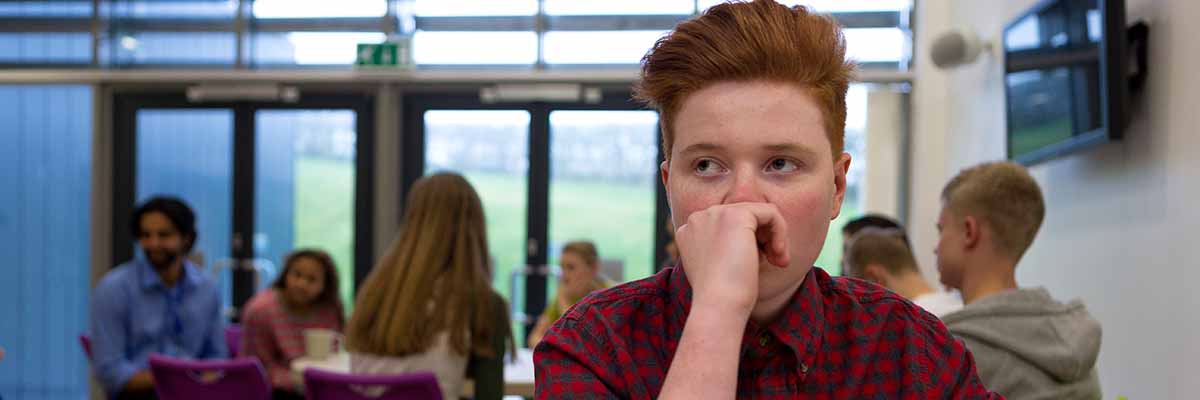 The short answer: no.
The short answer: no.
Right now, at this very moment, there are thousands of teenagers across the country – and the world, for that matter – asking themselves this same question. And that’s probably a low estimate, because there are a lot of teenagers in the world.
Probably way more than you realize.
Let’s take a quick look at the raw population numbers, taken from the United States Census Bureau and The Population Reference Bureau:
Teen Population (U.S.A.): 41,731,233. That’s just over thirteen percent of the total U.S. population.
Teen Population (Worldwide): 1,800,000,000. That’s almost twenty-four percent of the total world population.
When you think of it in terms of math, the fact there’s almost 42 million teenagers in the U.S., and 1.8 billion (yes, billion) teenagers in the world, makes it relatively implausible to believe there’s not a single one of them out there who feels like you do.
But you’re not a math problem, and feelings aren’t always logical. Feelings are almost never logical – and that brings up an important point: right now, your brain is changing. On top of all the hormones people yammer on about, in addition to the radical new changes in your body, over and above your drive to fit in with friends, carve out your own identity, and seek out new knowledge based on personal experience rather than simply believing what adults tell you, this is the time in life when the part of your brain that controls logical thought is learning to communicate with the part of your brain that controls emotions.
Your Brain on Adolescence
The two parts of your brain most affected by adolescence are the amygdala, which is responsible for emotions and instinct, and the frontal cortex, which is responsible for higher-order functioning such as high-order logic and decision making. Your amygdala develops early in life – it’s basically finished already – but the frontal cortex is only just getting started.
The frontal cortex contains an even smaller area called the prefrontal cortex, which is ultimately the control room for the entire brain. Though both the frontal and prefrontal cortex are present at a very early age, they don’t start to do their most important jobs until later in life.
You brain grows back to front. The back takes care basic functions, such as movement, eyesight, and emotions. The front – meaning the frontal cortex and the prefrontal cortex – takes care of more complex tasks. Applied skills in language, mathematics, music, and motor functioning (think next-level sports skills) are all refined as the frontal cortex develops, as well as more abstract things like logical reasoning and social skills.
At around the age of 12, your brain begins a process called pruning. Your brain starts to ignore the unnecessary neurons while the more important ones start to turn on. As the prefrontal cortex develops, the connections between the back of the brain and the front of the brain – between the amygdala and the prefrontal cortex – become stronger and stronger. You’re still processing input more with your amygdala than with your frontal cortex, but the balance is shifting with every passing moment.
The Train is Running on Time
What all this means is that the thoughts you’re having now feel brand new because up to this point in life, you didn’t even have the neurons to think them. When you’re a school-age kid, you don’t analyze your feelings. You just feel. And you act on your feelings. Now, everything is different: you have intense feelings, but there’s an extra layer to everything. You analyze. You mull things over. You reflect. You see things in yourself and other people you’ve never seen because there’s an entire section of brain at work that’s never really been active before.
Maybe you obsess over things and drive yourself nuts with thoughts like: Am I the only one who feels this way?
Again, there’s a simple answer to this question: no. Remember, there are 42 million humans out there in basically the same stage of development as you. And almost all of them have similar, if not identical, thoughts clamoring for attention in their brains.
The fact you’re asking yourself this question is a good sign. It means you’re right on track. Your brain is developing on schedule, and everything is as it should be. If you never asked yourself this question, then there’d be something to worry about.
































































